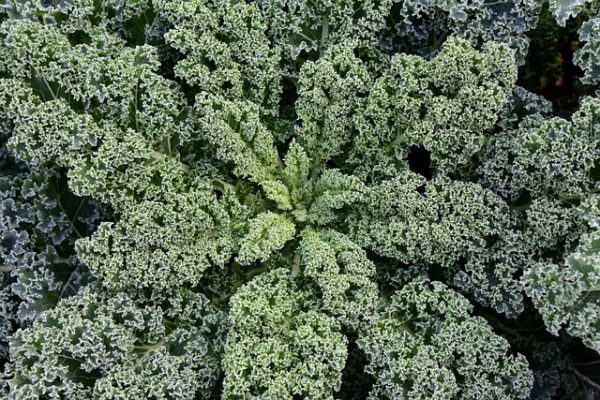 Kale is a super food; we have all come to awareness and agreement that it is great for the human body. It provides tons of nutrients, it is a cruciferous vegetable (super important for our diet), and it gives us a serving of those important leafy greens our bodies love to operate on. But what about dogs?
Kale is a super food; we have all come to awareness and agreement that it is great for the human body. It provides tons of nutrients, it is a cruciferous vegetable (super important for our diet), and it gives us a serving of those important leafy greens our bodies love to operate on. But what about dogs?
Now, it is important to remember the most critical key to feeding your dog kale and that is to make sure that it is fully cooked and try to avoid those ribs. As we will cover later in the article, uncooked kale along with the ribs can pose some health risks to dogs.
Effects of Kale in a Dogs Diets
There are a few notable reasons for making sure to serve your pooch a well-cooked serving of kale. The reason being that calcium oxalates are present in kale, which can generate calcium deposits also known as bladder and/or kidney stones. But luckily, boiling the kale and making sure it is fully cooked will eliminate this concern.
This next term is kind of a mouthful, but it is important to mention. Isothiocyanate. There have been many periods of research that have shown isothiocyanate to have great anti-cancer properties, which is wonderful. The only downside is that it can have an adverse reaction in a dog if they have too much. An upset stomach is within the realm of possibility if your canine has an overserving of kale.
How much Kale Can I Give My Dog?
To further reiterate portion sizes, thyroid issues can arise. But this is only an issue if too much kale is consumed by your pupper. If your doggo already has any thyroid issues, skip the kale. But if this is not a recurring concern for your dog, kale should be perfectly fine. It just happens to be another reason to make sure the kale is thoroughly cooked.
Another chemical element found in kale is called thallium. It is considered a heavy metal and may pose issues due to its level of toxicity. Thankfully, thallium poisoning is typically quite rare. It is just another item to keep in mind with feeding your dog portions of kale. A concern regarding thallium could arise in the amount of kale being fed to your canine.
Are there better options?
Whether there are better options in regard to the nutrients your dog can receive from kale will boil down to the preparation that is required along with any potential risks. As we have covered earlier in the article, there can be some health risks if the kale is not prepared in a certain way. Other cruciferous vegetables and leafy greens can provide a lot of the same nutrients. But like kale, they also typically require a special preparation when being fed to canines. Even humans benefit more from a lot of the same preparations that dogs benefit from.
However you decide to get all those great nutrients for your pooch, just be sure to provide a well-balanced diet full of all the great benefits of healthy food so they can live a long, enjoyable life.
In Conclusion
Although some minor concerns may be present when deciding whether to give your dog kale, certain guidelines and preparation will allow you to give your dog a special treat from time to time in the form of this powerful cruciferous vegetable. Proceed with some caution, make sure those portions are cooked, and start with just a little to see how your pooch may react to the new diet addition. Otherwise, kale is A-okay for most of our canine friends.

Hi, I am Andrew. I am the editor at FamilyWithPets. I am enjoy learning and sharing information about pets that helps enrich the lives of pets and pet parents.
